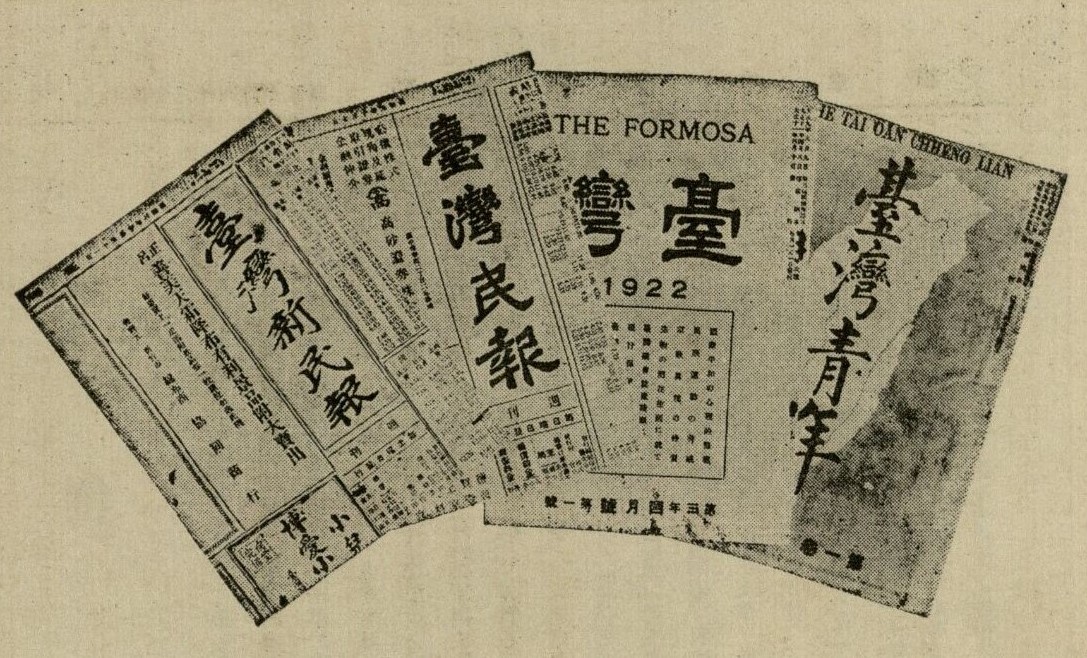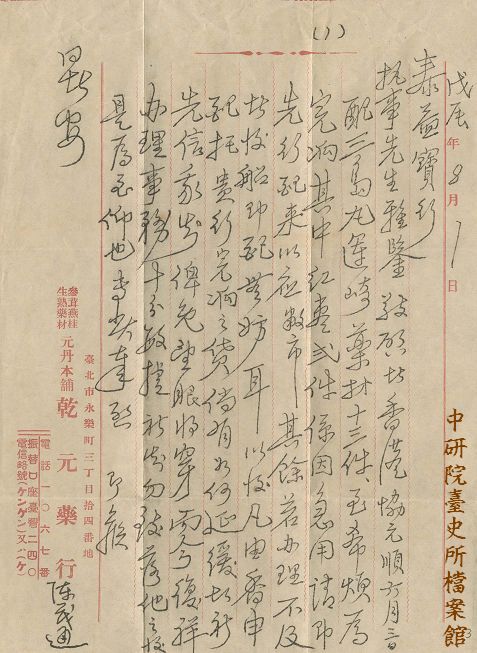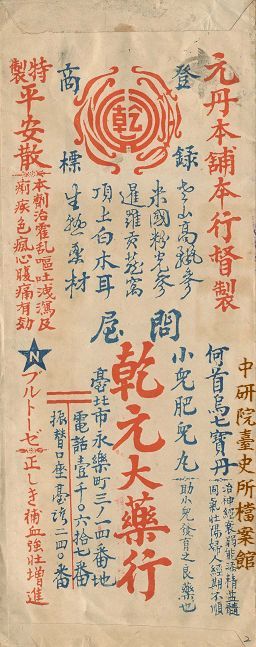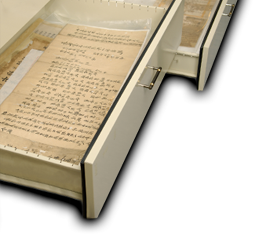

Publication date: 29 Oct 2021
Author: Lee Yi-ling, Hsieh Min-ro |Staff member of the Archives of Institute of Taiwan History
Yang Zhao-jia, one of the leading figures of the New Cultural Movement in Taiwan under Japanese rule, once said, “Newspaper and parliament are the two major driving forces for the promotion of civilization and social development.” Hence, the two core missions of the Taiwanese Cultural Association were running a newspaper and petitioning for the establishment of a Taiwanese parliament, which embodied their stand of unarmed resistance against colonial racism and had far-reaching impact on the enlightenment of Taiwan’s national consciousness.
2021 marked the centenary of the founding of the Taiwanese Cultural Association. In commemoration, the Archives organized a feature exhibition on The Taiwan Shinminpo, the only private Taiwanese-run newspaper during the Japanese colonial era. Selected collections of historical materials including personal documents, image data, diaries and passports were displayed and reviewed to illustrate that The Taiwan Shinminpo served to awaken and enlighten the people, boost national morale and propagate their political views to the public. Echoing the founding goal of the Taiwanese Cultural Association, The Taiwan Shinminpo opened a new page for Taiwanese to strive for democracy and freedom with a foothold in Taiwan and eyes looking at the world!

II. Qian-yuan Pharmacy
Unlike Lin-fu-zhen Store, which is a family-owned business, the managers of Qian-yuan Pharmacy had changed many times in the past one hundred years. To this day, there is still no definite conclusion on which year was Qian-yuan Pharmacy established, some believe it was established in 1875, others believe it was 1896. According to an article published on January 21, 1929, No.10329, Section 8, “Announcement of the 30th anniversary of Qian-yuan Pharmacy” in Taiwan Daily News, the manager Chen Mao-tong had an address as follows:
Looking back at the history of our store, it has been 30 years since Mr. Chang Qing-he established Qian-yuan Pharmacy in 1896. Mr. Chang served as the manager for 20 years. I have succeeded to his position for 13 years. Hence, Qian-yuan Pharmacy has been in operation for 33 years.
The founder of Qian-yuan Pharmacy was Chang Qing-he. After he passed away in 1917, Chen Mao-tong, the shareholder of Qian-yuan Pharmacy, continued operating the store. Chen was enthusiastic about public service. His acts of charity, like donating to disaster relief and supporting social enterprises, were reported by the newspapers many times. He was a renowned person in Dadaocheng and had served as the chief of Taiwanese Pharma Association and the president of Pharmacists’ Guild.
From 1917 to 1936, Chen Mao-tong operated Qian-yuan Pharmacy approximately for 20 years. Having business relationships with Tai-yi-hou, he had either directly ordered Chinese medicine from Tai-yi-hou or asked Tai-yi-hou to assist him to declare the goods to customs in Japan then import them to Taiwan. In 1928, Qian-yuan Pharmacy ordered 13 items of herbal medicines from Xie-yuan-shun in Hong Kong and asked Tai-yi-hou to assist the affairs of tax and transshipment. Qian-yuan Pharmacy reminded Tai-yi-hou that if the goods would be delayed when transshipping in Hong Kong and Shanghai, please inform them by letters as soon as possible, so they wouldn’t mistook a delay as a shipping lost. Moreover, the advertisements on its envelopes was printed with medicine sold by Qian-yuan Pharmacy: Supplements, which can repair blood cells, Peace Powdered Drug, which can cure cholera and epidemic disease, Vigor Pills, Tuber Fleece Flower Pills, Developmental Medications for Children, etc. (see Figure 3) On July 24, 1932, Taiwan Daily News (No.11599, Section 4) reported that Qian-yuan Pharmacy sent 1000 Peace Powdered Drug to Xiamen, where was plagued by an epidemic at the time.
 
Figure 3: The letter sent form Qian-yuan Pharmacy to Tai-yi-hou on August 1, 1928.
(Source: Tai-yi-hou Papers in Nagasaki, the digital archives held by the Archives of Institution of Taiwan History)
Chen Mao-tong was passed away in August, 1936. Qian-yuan Pharmacy had been managed by different shareholders like Zhu Shu-xun, Chen Fu, etc. Since Chen-Jin Qing-fu’s takeover in 1960, Qian-yuan Pharmacy has become a family enterprise until now.
|
|






